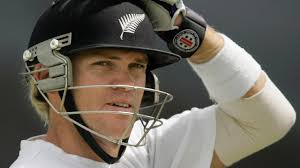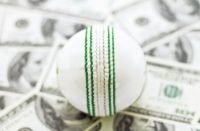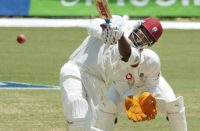Cricket
is one of the world’s most popular sports. And although it’s largely unknown in
places like America, in countries like Britain, Australia and South Africa it’s
huge. Then there’s India, where cricket is almost seen as a religion.
Unfortunately, this game also has a dark side and this usually refers to the gambling aspect. As you can imagine, with a game this popular there is a lot of gambling going on. Over the years there have been dozens of scandals related to cricket, gambling and certain players.
If
you want to try some gambling that not are rigged you can find quality casino
sites with great slots games in for example India or South-Africa
tops slots.
Here
are some of the most noteworthy:
India South Africa match fixing
scandal.
In
2000, the Delhi police picked up a conversation between a notorious Indian
bookie and the South African captain Hansie Cronje. Incredibly, while listening
in on this conversation they discovered that Cronje had taken bribes to throw
matches.
Soon
afterward a court of inquiry was set up by the South African government and
Cronje admitted his guilt. This caused a major scandal in South Africa and
after his admission he was immediately banned for life from playing cricket.
Cronje
also named several other players as being involved with match fixing. These
included Saleem Malik of Pakistan plus Mohammed Azharuddin and Ajay Jadeja from
the Indian team. Several South African cricketers were also implicated including
Herschelle Gibbs and Nicky Boje, although they manage to escape punishment.
Australian controversies.
Australia
is not without its share of gambling scandals. During the third test of the
1981 Ashes series, two Australian players (Dennis Lillee and Rod Marsh) put a bet
on England to win the match. This was after the odds had skyrocketed out to
500-1 and Australia were expected to effortlessly trounce England.
Despite
this England managed to come back and the two players were able to collect over
eight thousand pounds. Somehow they managed to avoid getting into trouble and
it was never confirmed if they threw the match.
That
being said, cricket authorities were widely criticized for overlooking this and
it’s said that the incident contributed to the match fixing scandals of the
1990s and 2000s. A second scandal
involved Mark Waugh and Shane Warne, who received money from a bookmaker known
only as, “John” during the Sri Lanka tour of 1994.
According
to reports they were given more than $5000 to provide pitch and weather
information. Later the Australian Cricket Board would fine both of these
players. Despite this, the information wasn’t released until 1998, which some
feel contributed to further match fixing scandals.
Another
report concluded that players were unaware that interacting with bookmakers
could be dangerous, and that players should be alerted to this. Players should
also be fined and suspended if they were found to be colluding with bookmakers.
As
a result of these incidents, the ICC would set up an anti-corruption and
security unit, headed by former members of London’s Metropolitan Police.
New Zealand match fixing scandal.
Soon
afterward, this anti-corruption unit approach three cricketers from New
Zealand, who were accused of match fixing. Two of these men, Daryl Tuffey and
Chris Cairns were found to be innocent.
The
third player, Lou Vincent admitted to cheating while playing for teams in South
Africa, India and England. He was later given 11 life bans from the England and
Wales Cricket Board.
Sri Lanka pitch tampering scandal.
In
2018 it was reported by media outlets that pitch tampering may have occurred
during the test matches between Sri Lanka and Australia and also between Sri
Lanka and India. These outlets also reported that various gambling syndicates
may have taken advantage of this to make money. Several individuals were
implicated in this scandal including Indian and Sri Lankan players as well as
groundskeepers involved in maintaining the pitch.















